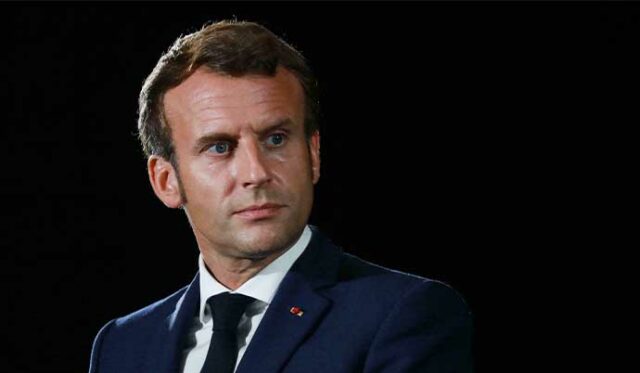NEW DELHI: France’s President Macron has less than nine days to convince voters that he deserves to remain in the top job. This despite having reduced unemployment to its lowest level since 2008 and widespread approval of his handling of the Ukraine crisis. Macron is facing an extraordinarily tough challenge from Marine Le Pen. The far-right nationalist leader who only managed to gain 33% of the vote as opposed to Macron’s 66% in the 2017 presidential polls, is now posing a stiff challenge. Though opinion polls give the president a slight edge, the possibility of a Le Pen victory now seems real. The pundits say a Le Pen victory would alter Paris’ relations with Brussels and Nato along with a softening of attitude towards Moscow which could undermine the anti-Russia coalition in Europe.
Election watchers believe that Macron’s sinking popularity is partly due to him being perceived as “distant” by some voters (because he started his campaign late). The French president has acknowledged that he has erred on this by believing acting like a statesman on Ukraine would be enough. Domestic issues are also hurting him. From rising fuel prices, anger among working-class voters over the raising of the retirement age to 65, and the failure of leftist leaders to unite behind him has hurt his image. Far-left politician Jean-Luc Mélenchon who polled over 700,000 votes in the first round and then withdrew, urged his supporters not to vote for Le Pen. But he did not tell them to vote for Macron, so many could abstain on voting day.
Former Indian ambassador to France Mohan Kumar believes that Macron has been caught in a “black swan” moment. “Rising fuel prices are a very sensitive issue in France, but this is something that Macron has no control over given the crisis in Ukraine. Still the perception persists that he is to blame. On the other hand, posters showing Marine Le Pen shaking hands with Putin along with the fact that she received 9.4 million Euro loan from a Russian bank hasn’t impacted her as negatively as it should have. People seem willing to forgive her on this.”
The rise of Marine Le Pen also coincides with the fact that the electoral political landscape has shifted to the right. While there was a far-right movement that goes all the way back to 2002 when former president Jacques Chirac beat Marine Le Pen’s father, Jean-Marie Le Pen, there was an understanding among French centrist and left parties that a far-right leader would never be allowed to enter the Élysée. Such an understanding now seems to have faded. The other major change has been the political makeover of Marine Le Pen. She’s softened her hardline stance of no to the EU, no to the Euro and no to non-white immigrants and through this she has managed to appeal to a wider French electorate.
“Le Pen has played her political cards very well. She now states that she’s not going to leave the EU or the Euro, but she is going to reform the Euro from within. Her message that France as a strong, independent country can shape the EU into a loose coalition of democracies and push for its own laws is gaining ground,” says Kumar.
On Russia, the ambassador believes that growing divergences between Brussels and Washington will only gain ground under her. “Look, there’s already a difference in the way Europe and the US are perceiving Russia. President Biden’s words stating that the Russian war in Ukraine amounted to “genocide” was subtly countered by President Macron who stated that the word genocide was a “legal term” that “could not be characterised by politicians.” Such nuanced differences can be managed but if Le Pen does come to power it’s more than likely that there will be a political rift.”
The political consensus however seems to be that Macron will scrape through but if that is indeed the case the French president will have a tough five years ahead of him. Post the presidential polls are legislative elections scheduled to take place in June. If Macron’s party does not get the majority here, the president will have to cobble together support for each legislation he intends to pass, something that will be very difficult to achieve. This inability will certainly hurt Macron’s standing domestically but its ripple effects will also be felt in Europe and the US that are depending on a strong French presence to bring stability to the EU and ensure the pressure remains on Russia.
Traveller, bibliophile and wordsmith with a yen for international relations. A journalist and budding author of short fiction, life is a daily struggle to uncover the latest breaking story while attempting to be Hemingway in the self-same time. Focussed especially on Europe and West Asia, discussing Brexit, the Iran crisis and all matters related is a passion that endures to this day. Believes firmly that life without the written word is a life best not lived. That’s me, Ashwin Ahmad.





